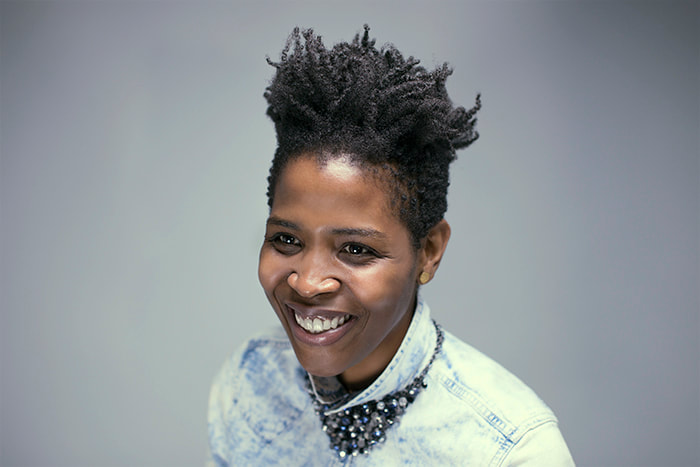|
Arisa White is an assistant professor of creative writing at Colby College and a Cave Canem fellow. She is the author of Who’s Your Daddy (Augury Books 2021), co-editor of Home Is Where You Queer Your Heart (Foglifter Press 2021), and co-author of Biddy Mason Speaks Up (Heyday Books 2019), winner of the 2020 Maine Literary Award for Young People’s Literature. She serves on the board of directors for Foglifter and Nomadic Press. arisawhite.com Artist Statement I’m writing with the future at my back, and beauty is a scar on my poems. Each poem is an unlearning and learning again, the symmetry and asymmetry of things collaging their experiences, shapes, and forms to create a moment of pause—a stillness that allows us to account more deeply for our existence. With poetry, I create those moments of afterlife, of attentiveness, of provocation where people are reawakened to their senses. Where they embody the power of language—to truth and tell, to bridge and voice, to agitate what makes us numb and separated, to reclaim our belonging. In my teaching, I call on this wild-water beauty to facilitate the flow of creativity already present in us all, so we remember and practice being a force that contributes to the making of our world. So we embrace our abilities to be resourceful and generative, communal and a single drop. I’m doing this for the record, living the poetry of my life. The Lorde’s Work: Poem “Suffer the Children,” from The First Cities (1968)
In The First Cities poems, references to nature are signaling a subtext, something more is resonating underneath. The poems feel animated with what is unsaid, because Lorde turns your attention to the vocabulary around us, the grammar of the environment as word. It is hard to express the inner lives we live. Those first moments of speaking are populated with all the speaking you’ve heard, read, taken into your body—their syntax, their idioms, all the figures of speech you’ve attached to. There are so many roots, lineages, branches, traditions, can(n)ons, kinships in our mouths. We make our metaphors from what speaks to us. In that making, we are confronting our own voices, the distinct sound of our spirits. Which seasons have held your most profound experiences? Those emotions that hook you with their light and shadows, where in nature can you find them? Take notice of your surroundings, what resembles the weather inside you? The poem “Suffer the Children” opens with these nouns: “man,” “waste,” “earth,” “water,” “children,” “flood,” “drought.” There’s death. Considering the historical moment: 16th Street Baptist Church bombing, Birmingham, Alabama, 1963, and Addie Mae Collins, Cynthia Wesley, Carole Robertson, and Carol Denise McNair were murdered. Then each decade to the present calls the names of their dead. The poem asks: “But who shall dis-inter these girls To love the women they were to become Or read the legends written beneath their skin?” The question implicates me in their remembrance. This question, I too, was unconsciously responding to when I wrote the poem “My Dead” in which I answered Lorde by saying, I shall, “with my hands I would step her from her clothes,” my cousin who was HIV+ and died from its complications. The other option presented by “Suffer the Children” is to be a reader of “legends written beneath their skin.” How do you acquire the literacy for this language? How to conjure lives taken by “a man” who someday “will thirst for sleep in his southern night”? What care must be taken so this reading can be done? I’m compelled to drink water, to rest, to love woman—the feminine ways of being and knowing that sharpens the intuition, creates space between you and suffering so your vision doesn’t collapse from polarization, from the natural disasters this stage of capitalism wants to make off of you. So go towards your spring, where the ground has softened, and begin exhuming your four little girls: she who is noble, she who is moon, she who is song, she who is free, and let them become. “My Dead”: https://www.splitthisrock.org/poetry-database/poem/my-dead) Comments are closed.
|

 RSS Feed
RSS Feed